Analitica
Management platform tool that provides insightful data of a company's workforce.
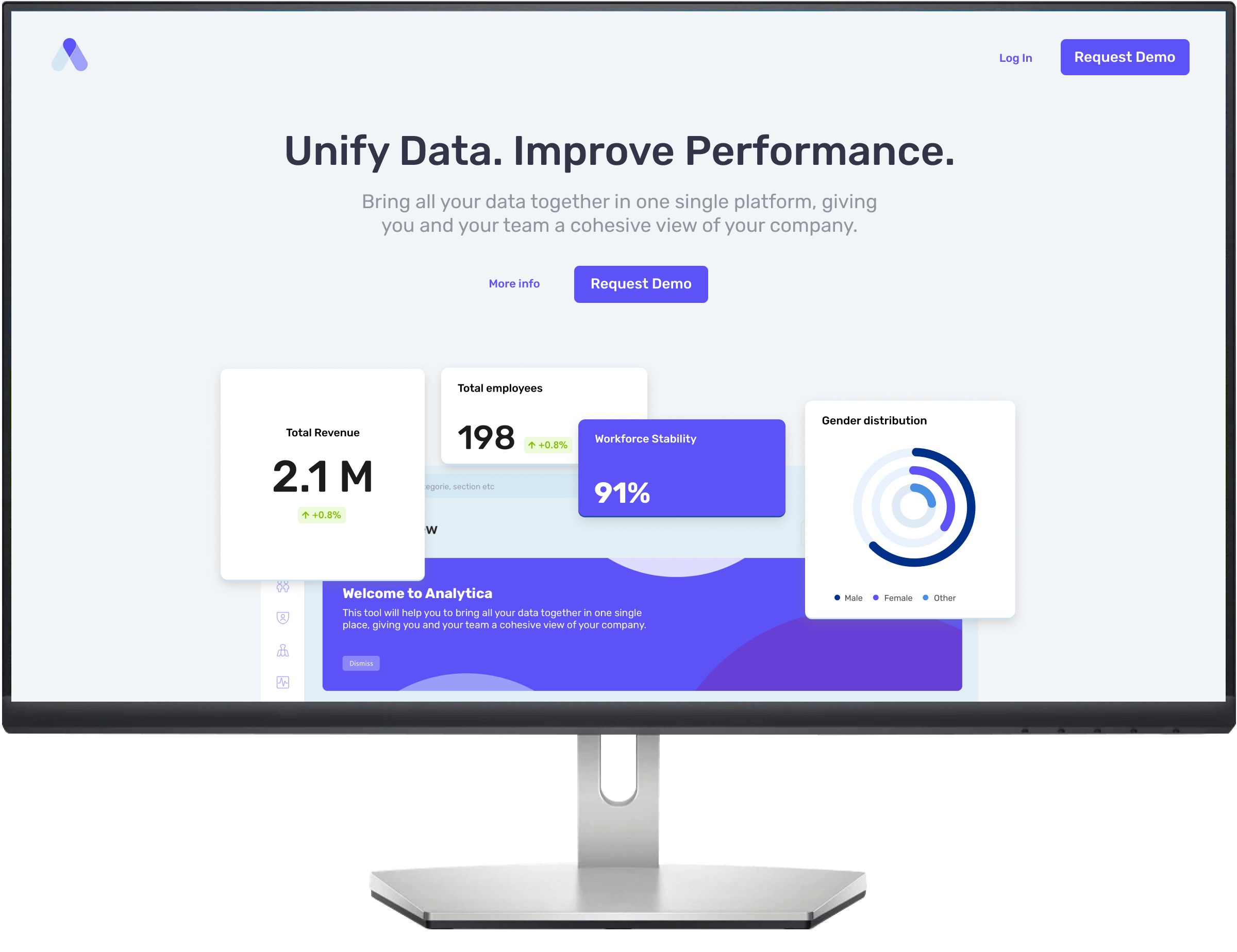
Overview
A FinTech company that used a subscription CMS platform to supervise all related data linked to a company was looking for alternatives.
This CMS platform had a data-driven approach with a robust focus on collecting data from a cloud of databases and infusing it into dashboards. The monthly subscription was on the expensive side and expectations were high.
Product
Private - NDA Agreement
Role
UX/UI , Branding
Goals
Design a customizable digital platform that provides relevant information for the Human Resources and Bussiness Unit departments.
Redefine roles for editors and administrators within the company, so they can work together and not depend on external contractors.
Create a component-based design that allows to scale fast and make design and development consistent.
Discovery
The first meeting was in order to understand the stakeholder's view of the problem, establish common goals, and start to generate a list of hypotheses to validate in later interviews. Design and technology constraints were discussed to run a feasible MPV.
Problem
The platform receive several usability complaints from end-users, didn't have the expected enhancement and was decreasing over time. The system was connected to a large list of databases in order to centralize all data, making the loading response time very long and the task to check for information time-consuming.
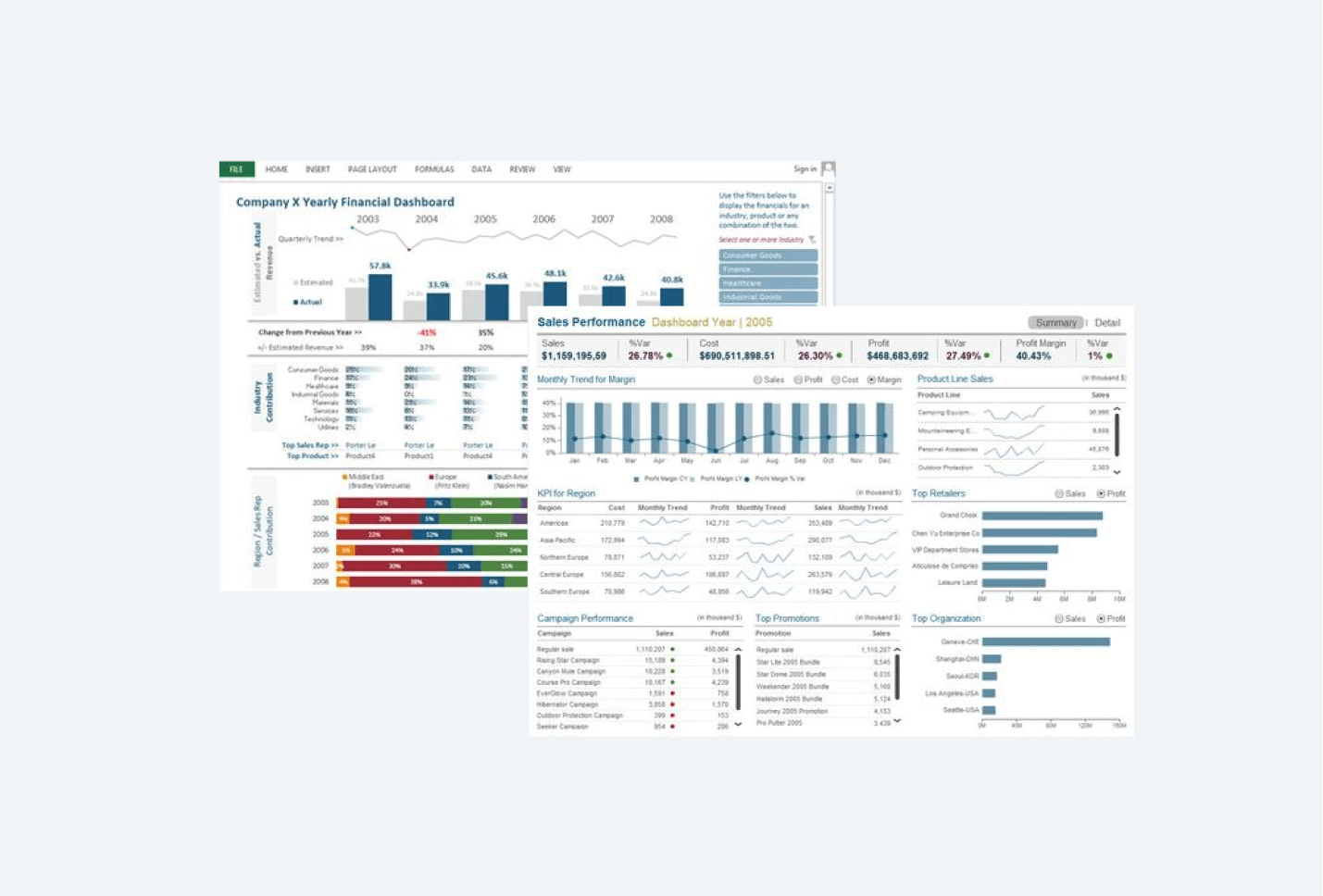
Illustrated example of Previous dashboards
Research
User interviews allowed us to understand the end context of users and know what they think about the current tool as a large library of data
The main need was on the Human Resources and Bussines Unit department. They felt frustrated by how slow the system was. Every task they tried to complete was followed by long response times, due to the large list of databases the platform was connecting to. Besides, the overall look and feel were out of date and weren't reliable in their eyes.

Photo : Anna Shvets
Define
After gathering all possible data, we started to organize it and choose what problems could be solved framing them as How might we statements. One HMW was the main focus for later ideation.

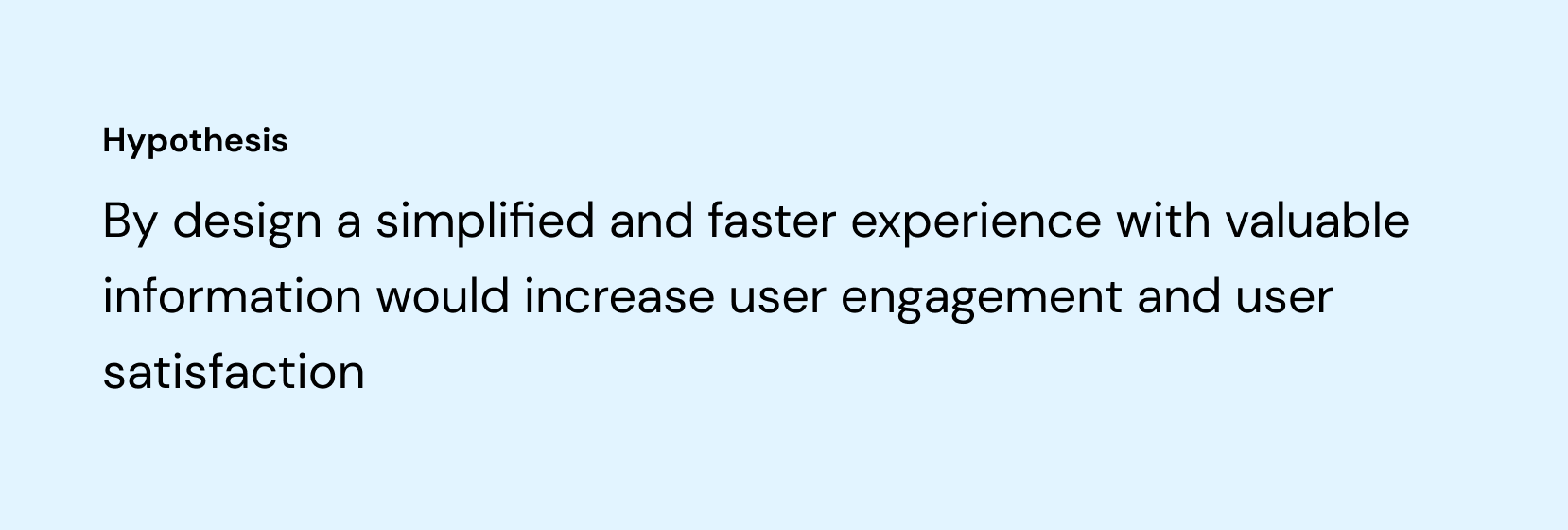
User profiles
Three user profiles were defined based on their tasks, which allowed us to focus on the main objectives they were trying to complete.
1. Human Rersources Manager
Head of Department | Bachelor in Psychology | 5+ years experience
Tasks performed
• Approve new hirings
• Track general employee status
• Spot demotivated employees
2. Regional Director
Head of Department | Bachelor in Administration | 8+ years experience
Tasks performed
• Present Quarter reports to CEO and COO
3. Adminsitrator
Computer technician | 1+ years experience
Tasks performed
• Manage connection to databases
• Create tiles that Regular users were going to use as a template
• Assist HR and Regional Director
Information architecture
To structure information and define the hierarchy of the different sections we used wireframes and a sitemap as a tool for alignment within the team.
Wireframes
After a first-round of lo-fi wireframes, we moved to mid-fi wireframes and started to define content making sure to head in the right direction. Regular Users were able to create, customize, and export reports. Root Administrators could create tiles with info used on the creation of dashboards.
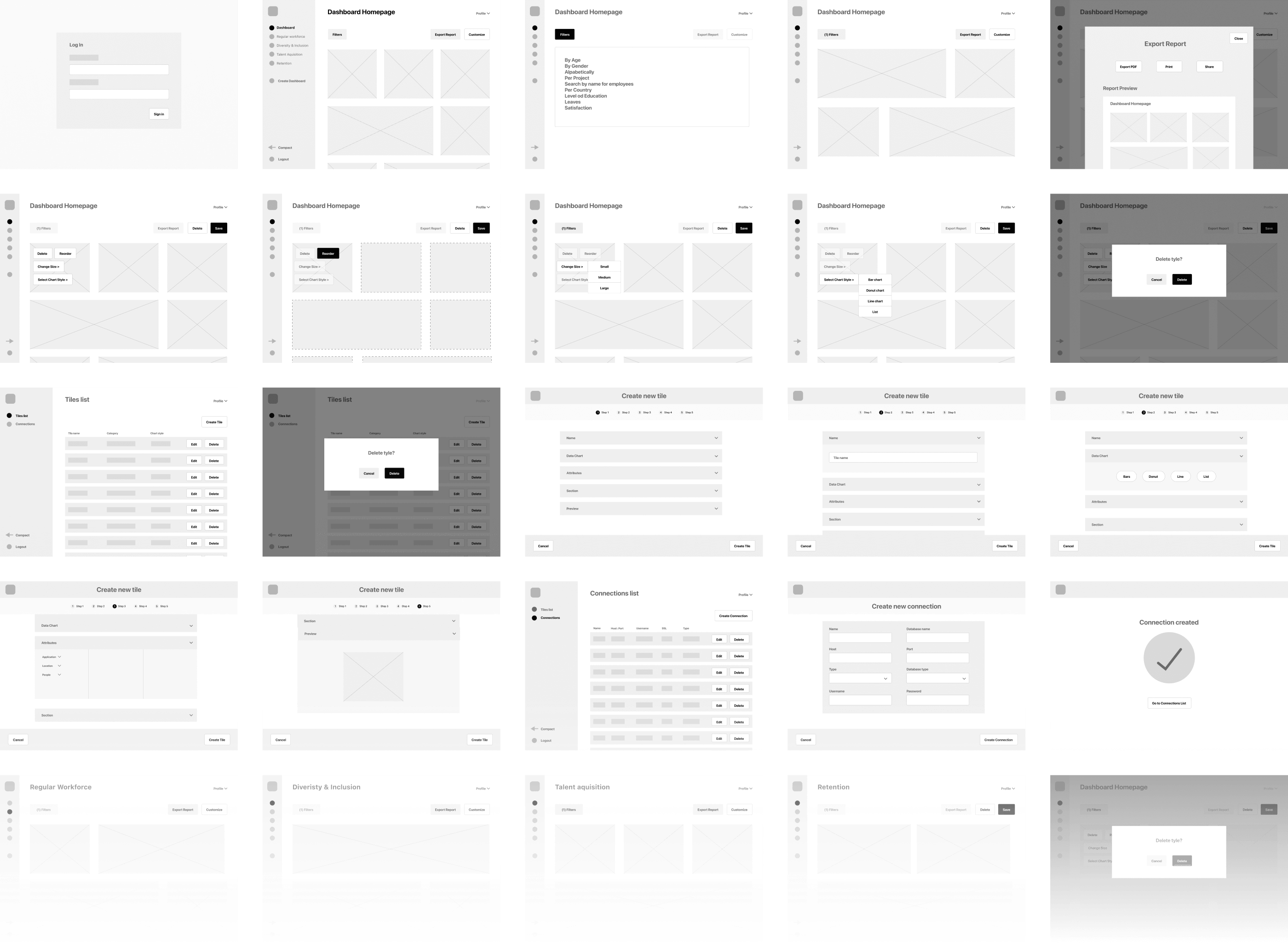
Sitemap
A basic sitemap was made to structure the navigation and show the relationship between different pages, which helped to visualize how a user could interact with the platform. Two different levels were needed to separate actions for two different roles, Regular Users and Root Administrators.
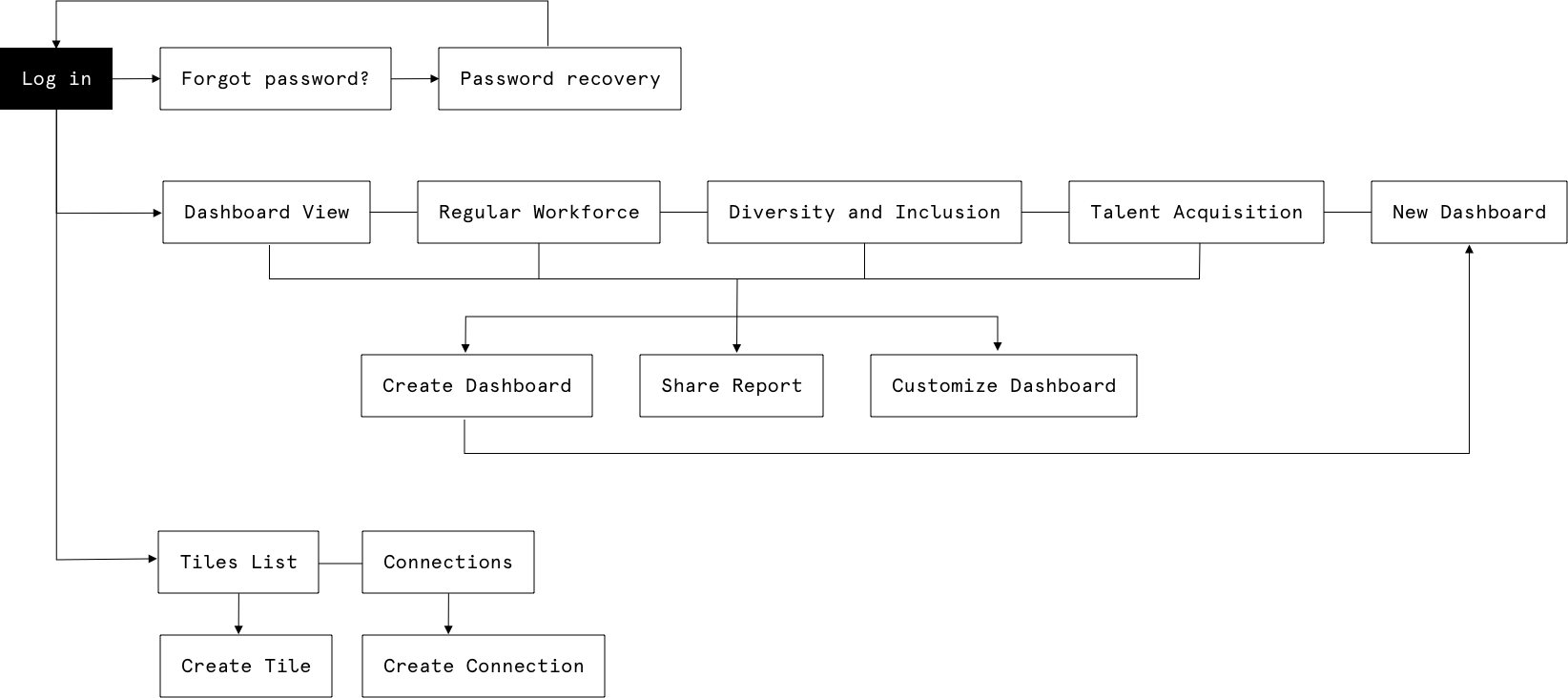
Grid foundation
In order to have flexible layouts, a block grid was defined for the placement of information. This allowed organizing visual elements in a different set of arrangements, helping to define visual hierarchy and contrast.
The solution
A management visualization tool for key performance indicators of a company, that allows creating custom dashboards with a range set of widgets for different purposes. A clean interface was the main focus, displaying information as clear as possible, using contrast and white space generously to guide the user's eye.
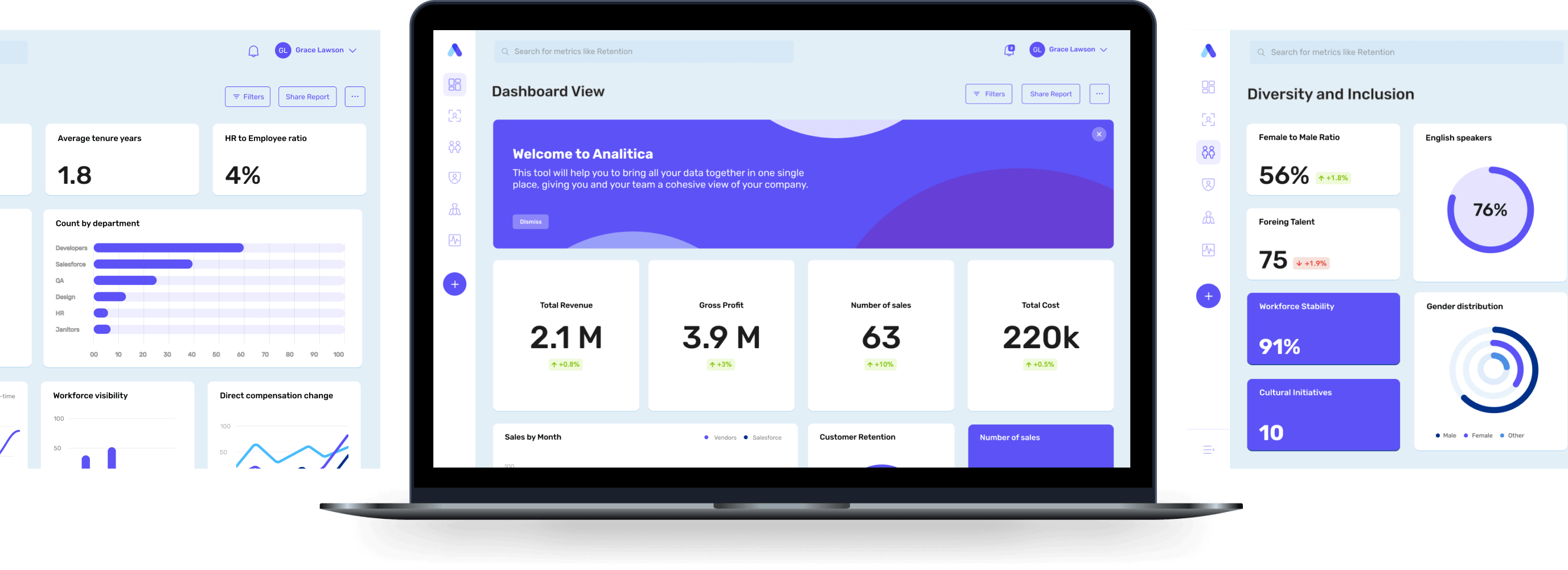
Main sections
Six main sections were defined based on useful indicators for the Human Resources and Bussines Unit, each one shows KPI´s of interest that allows this departments to make decisions based on updated information.
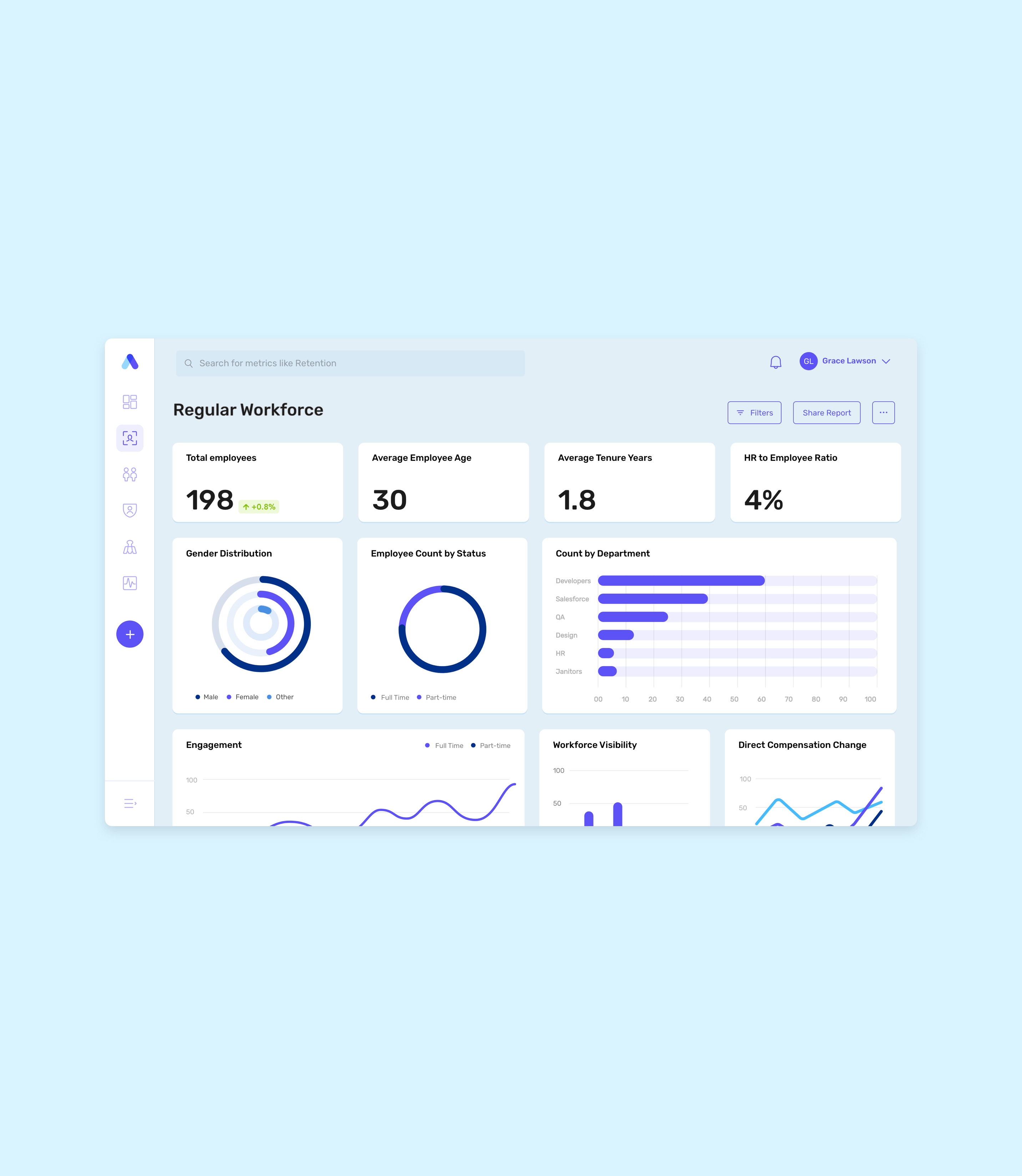
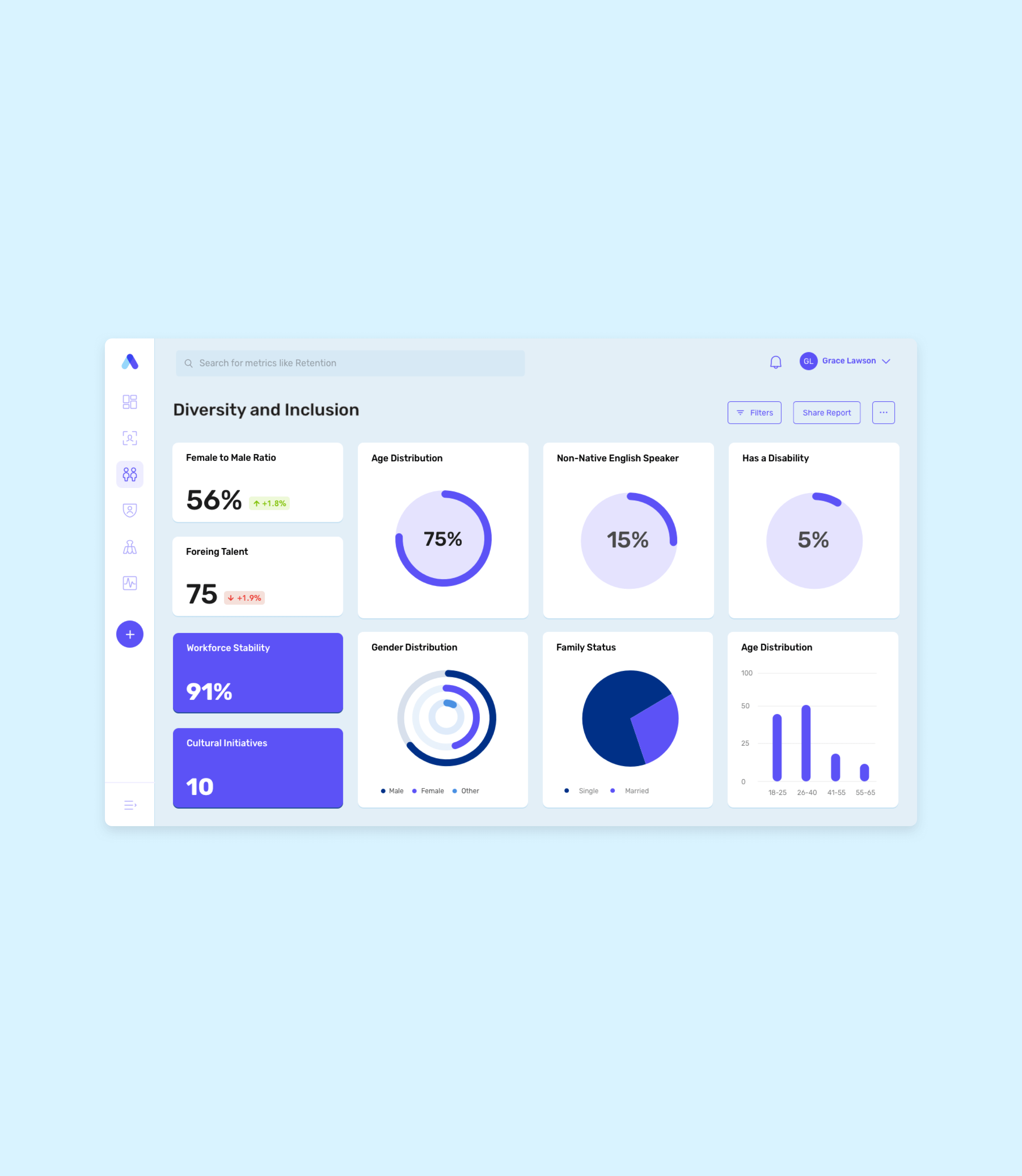
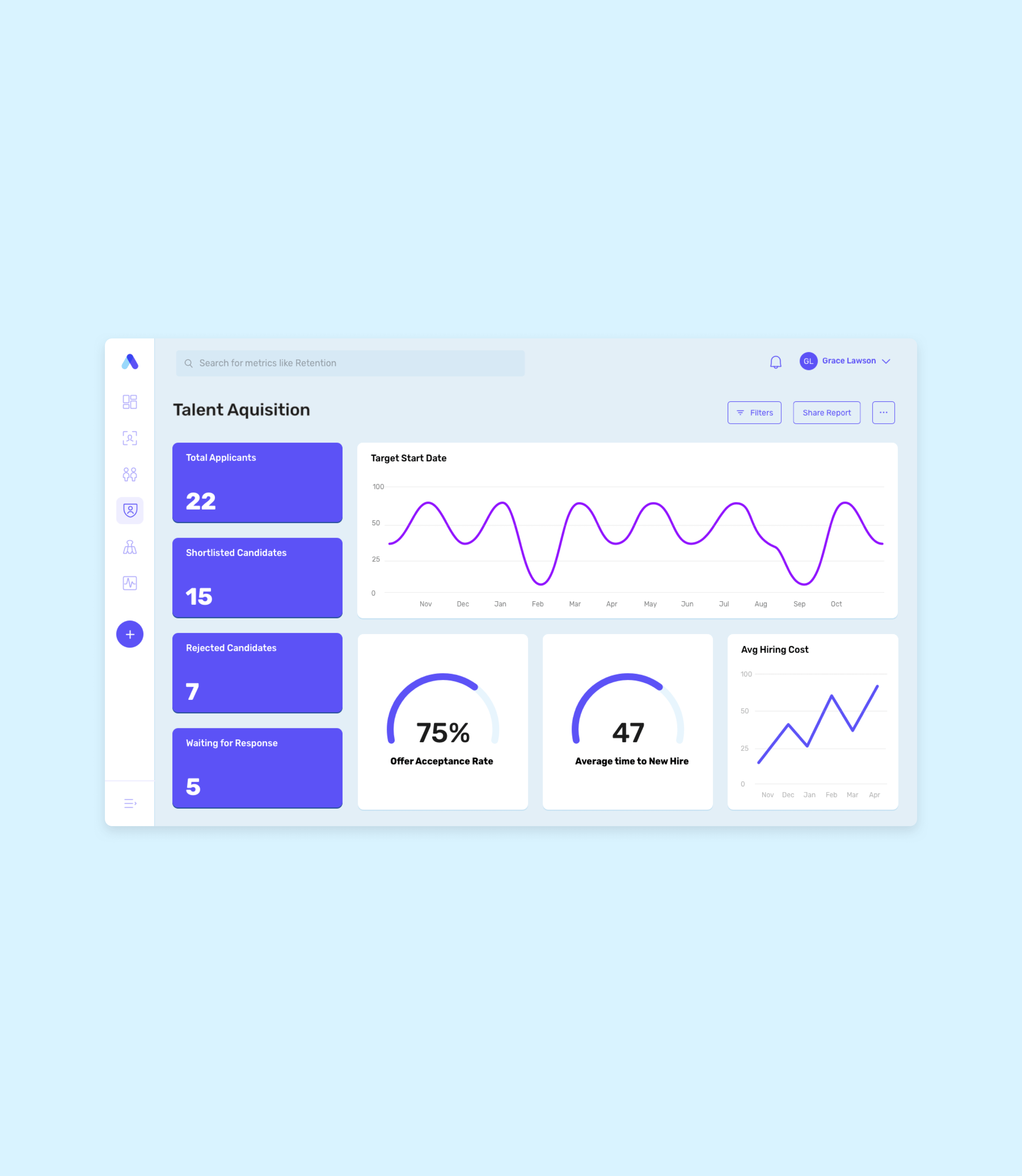
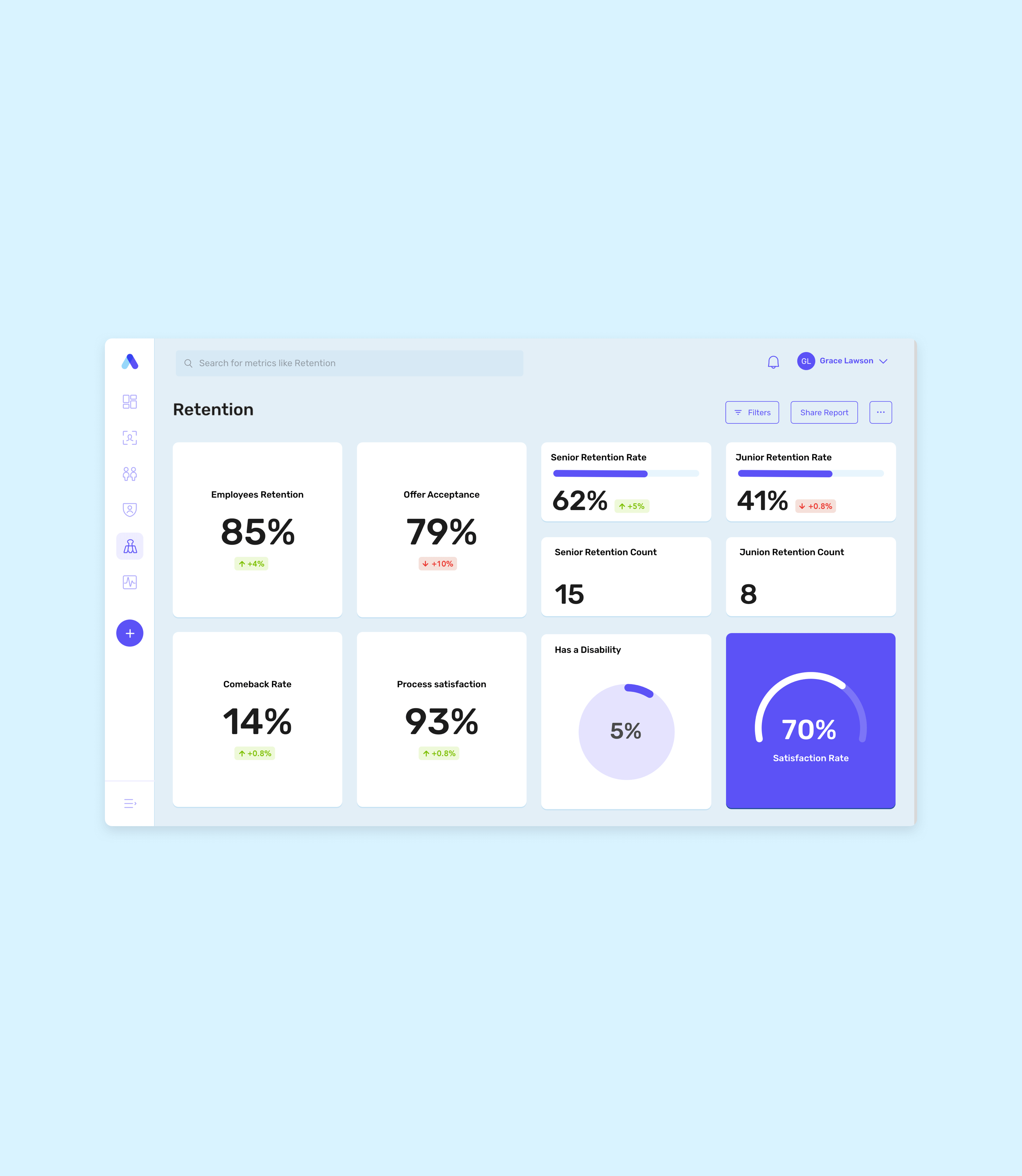
Customize
Tiles can be reordered in different layouts by drag and dropping them, allowing users to set custom arrangements for each dashboard. In addition, all the available options for the customization of a tile are displayed in the edit dropdown, such as chart style, tile name, appearance, and size.
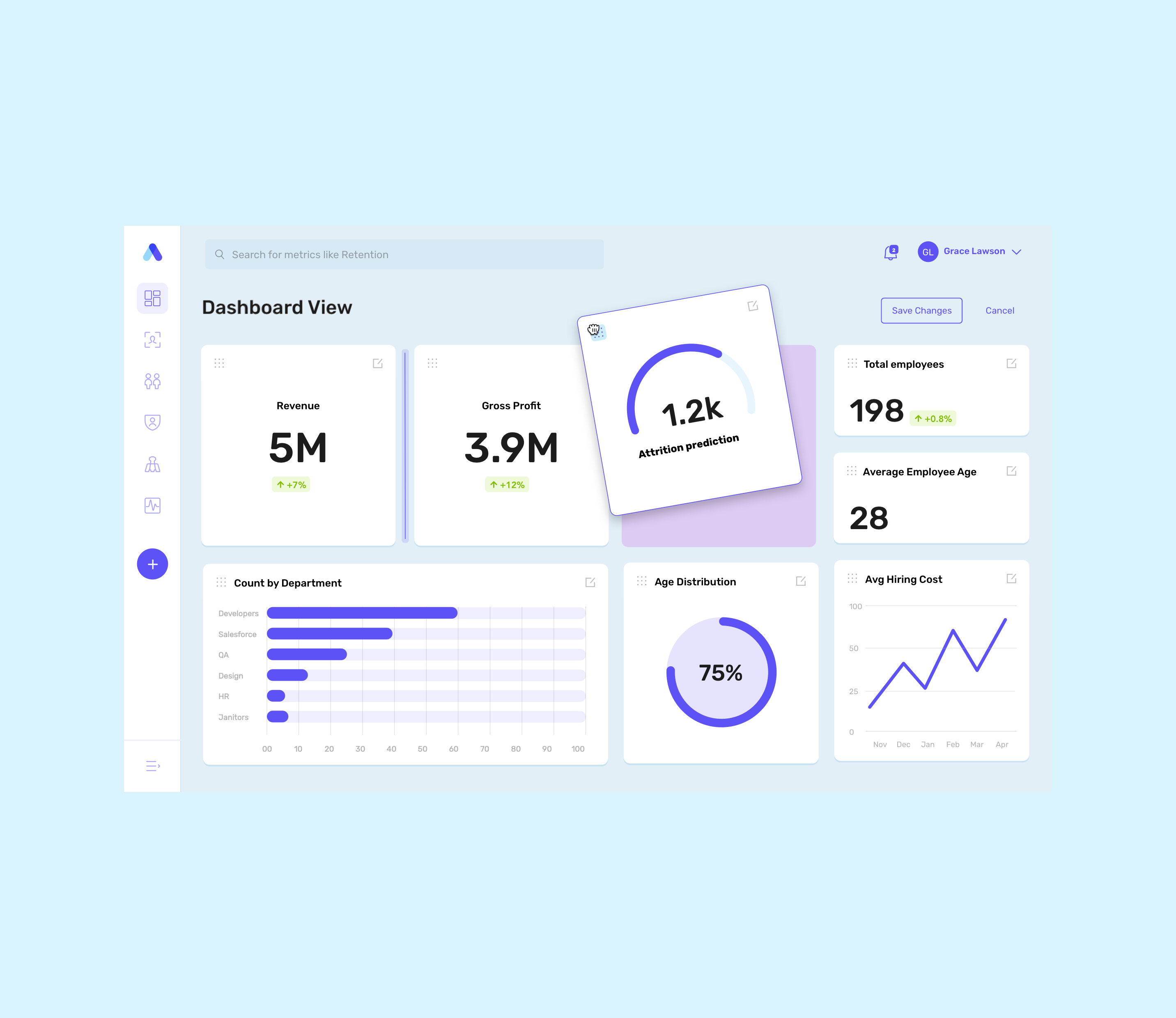
Share reports
Dashboards have several sharing options, via a link, email, or can be downloaded in PDF and be distributed in other ways.
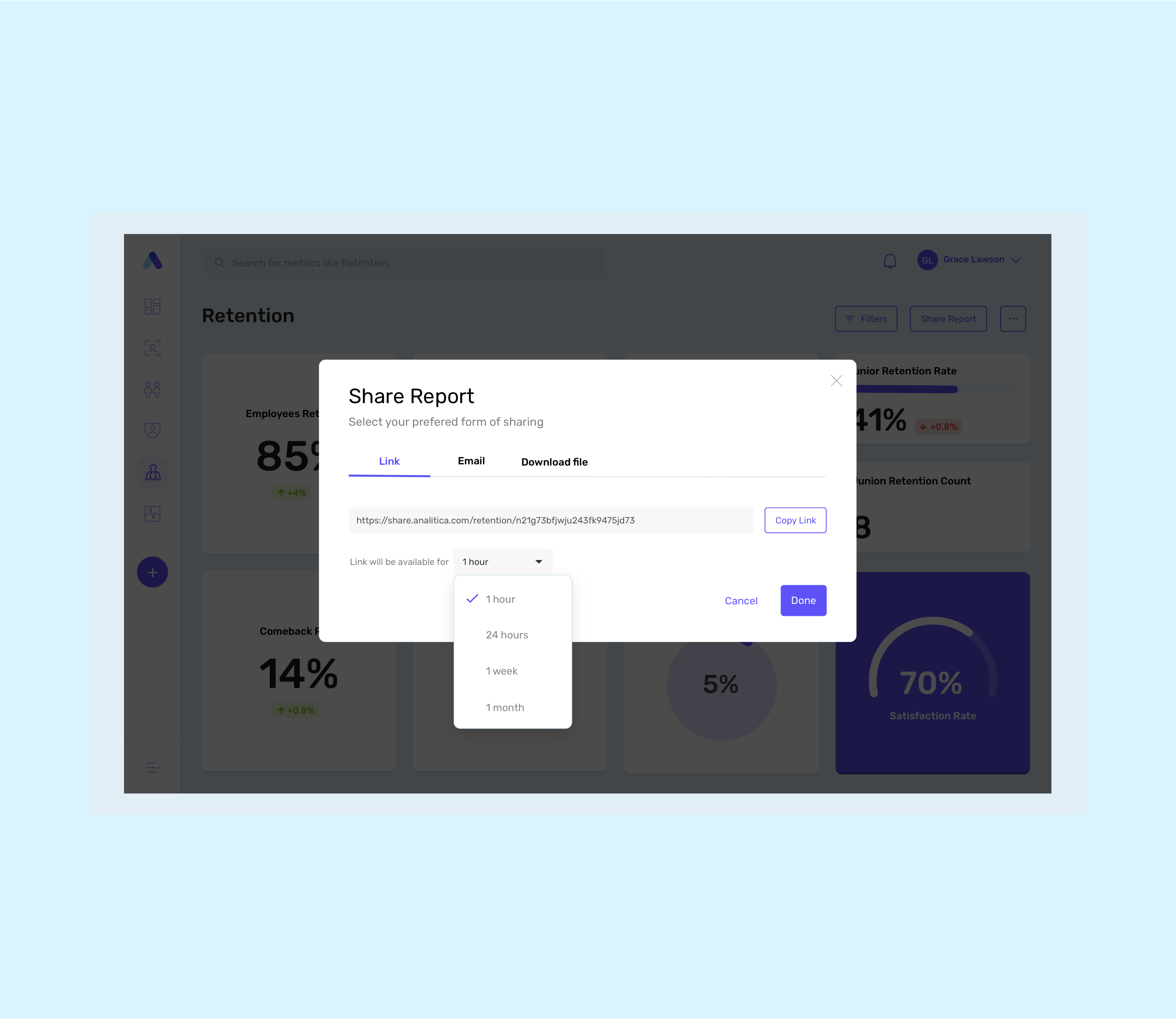
Creation of dashboards
Create a new dashboard with tiles, from a pre-existing template or from scratch. Tiles can be dragged from the tiles catalog and drop it on an open spot on the dashboard grid.
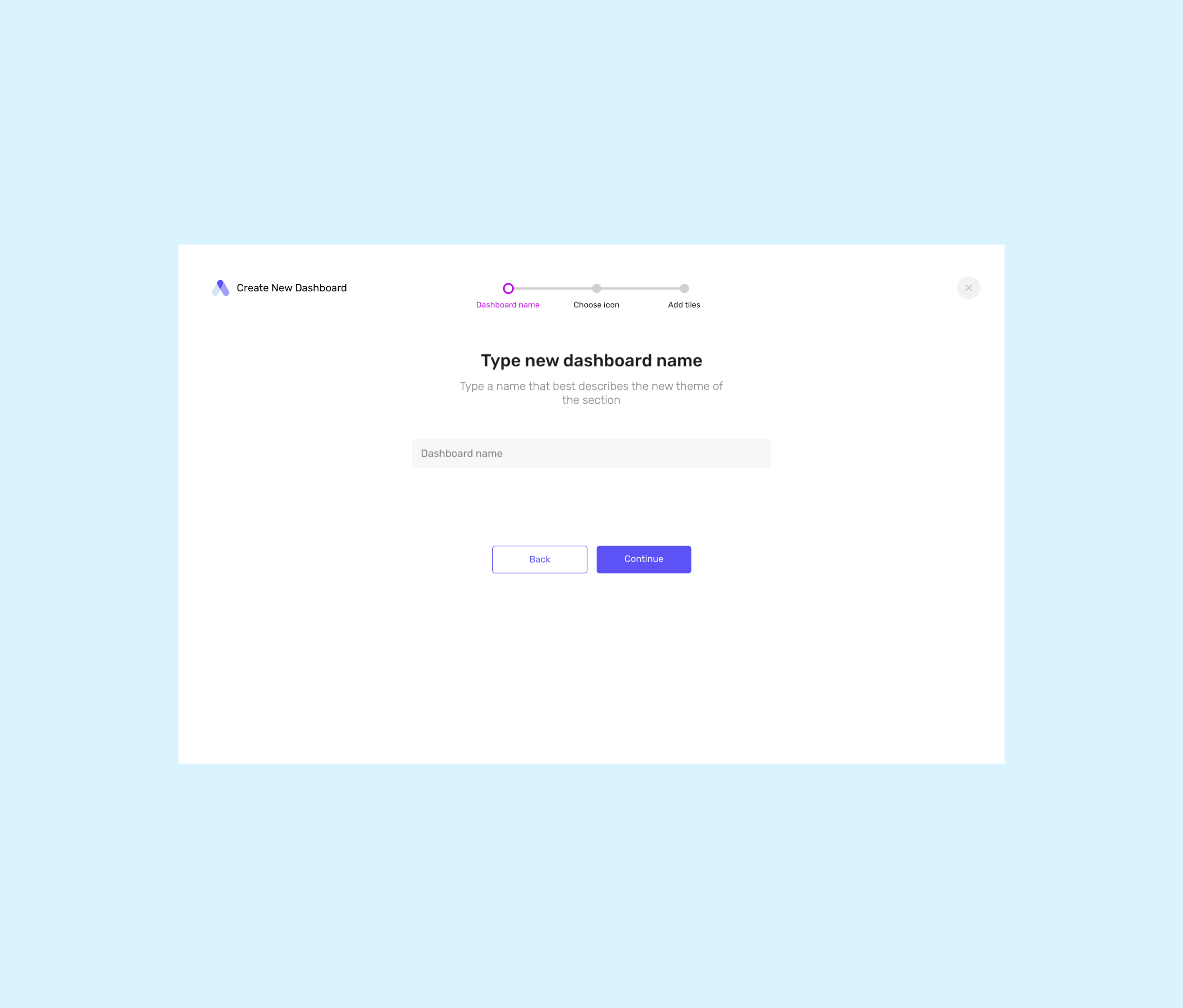
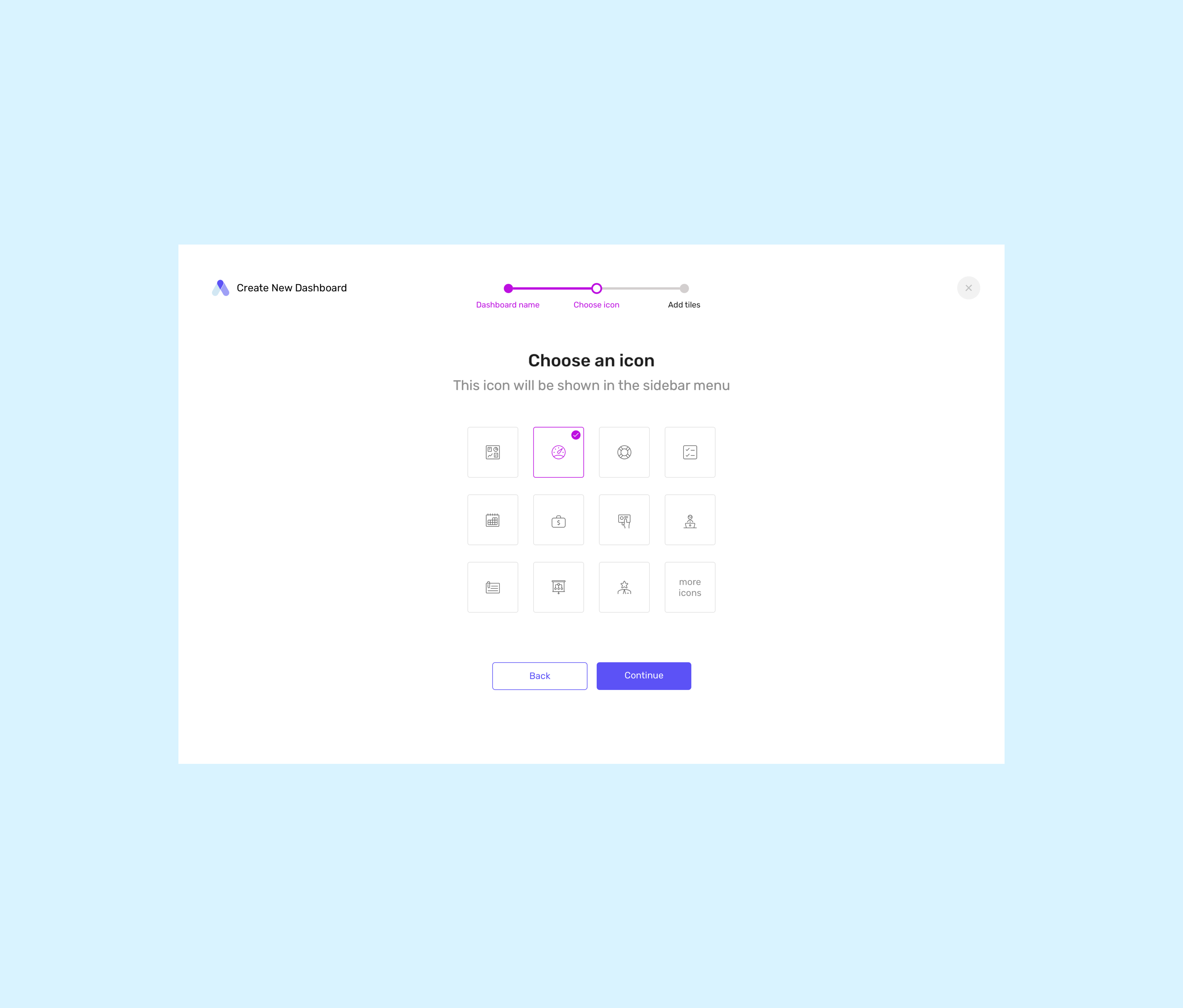
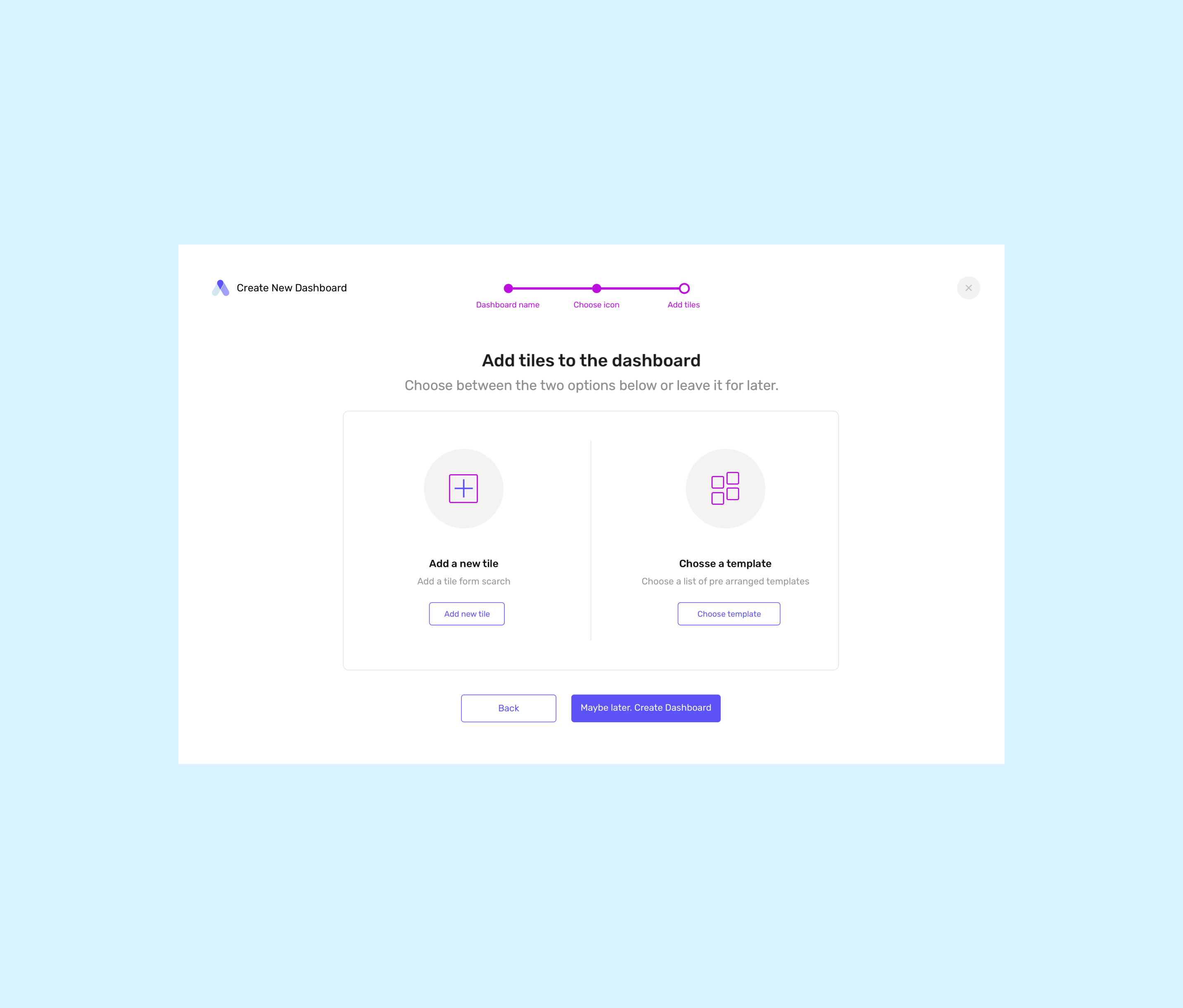
Tiles library
The nature of the project required a scalable data system that could be used as a framework. We achieved that by making a library of widgets made of pre-built data visualizations called Tiles.
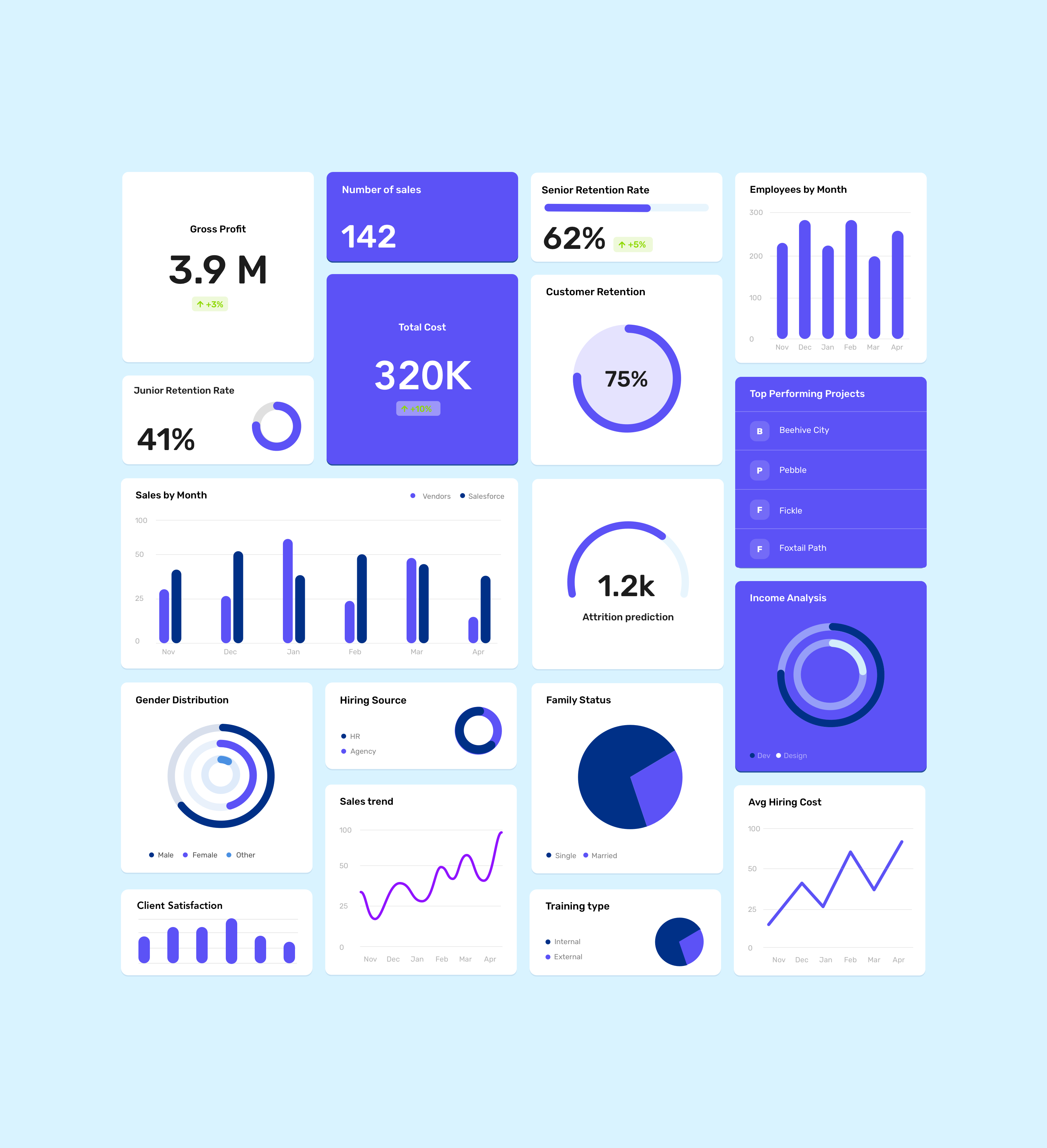
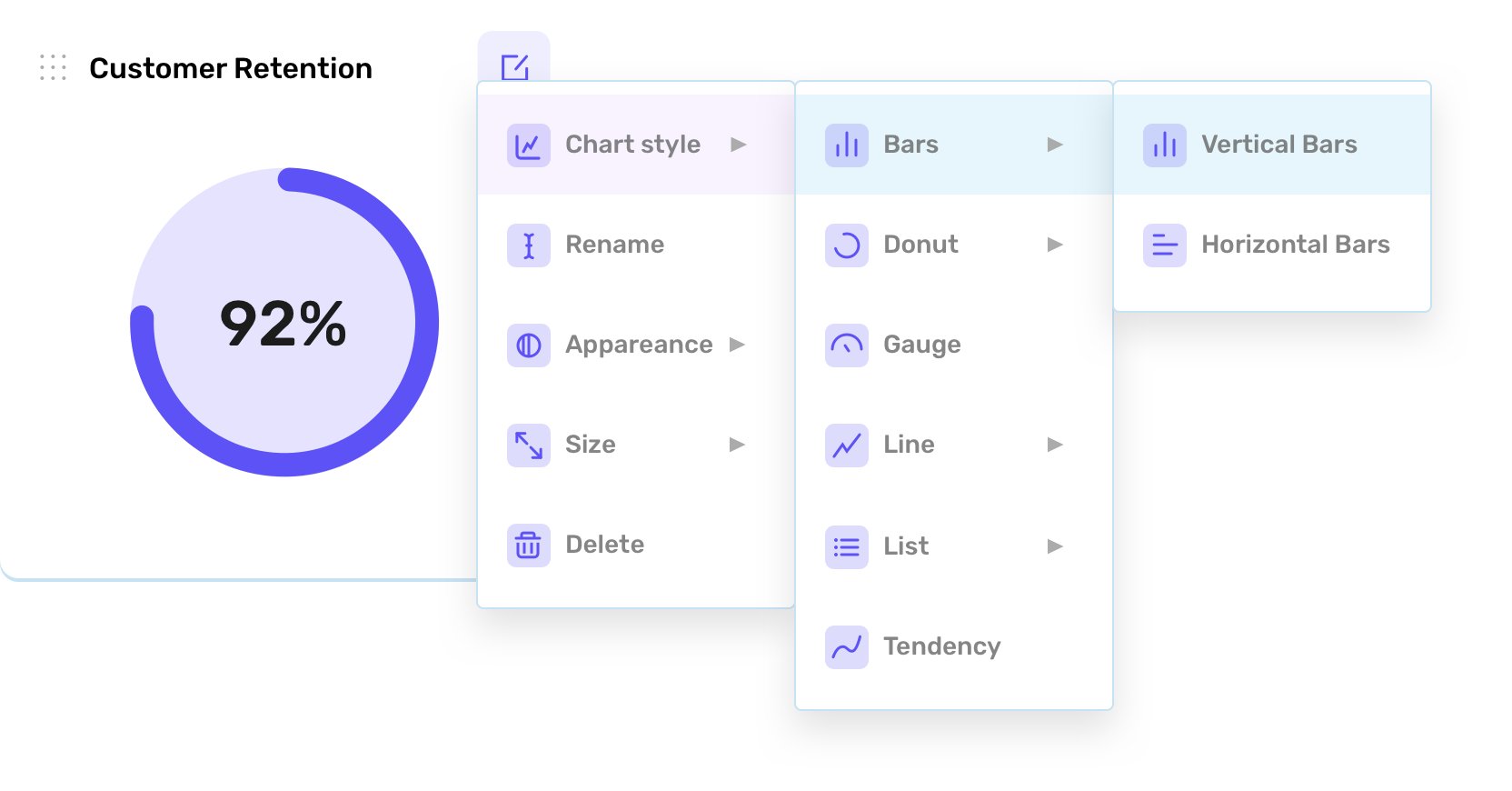
Design system
A design system was created to provide centralized and consistent standards of visual language.
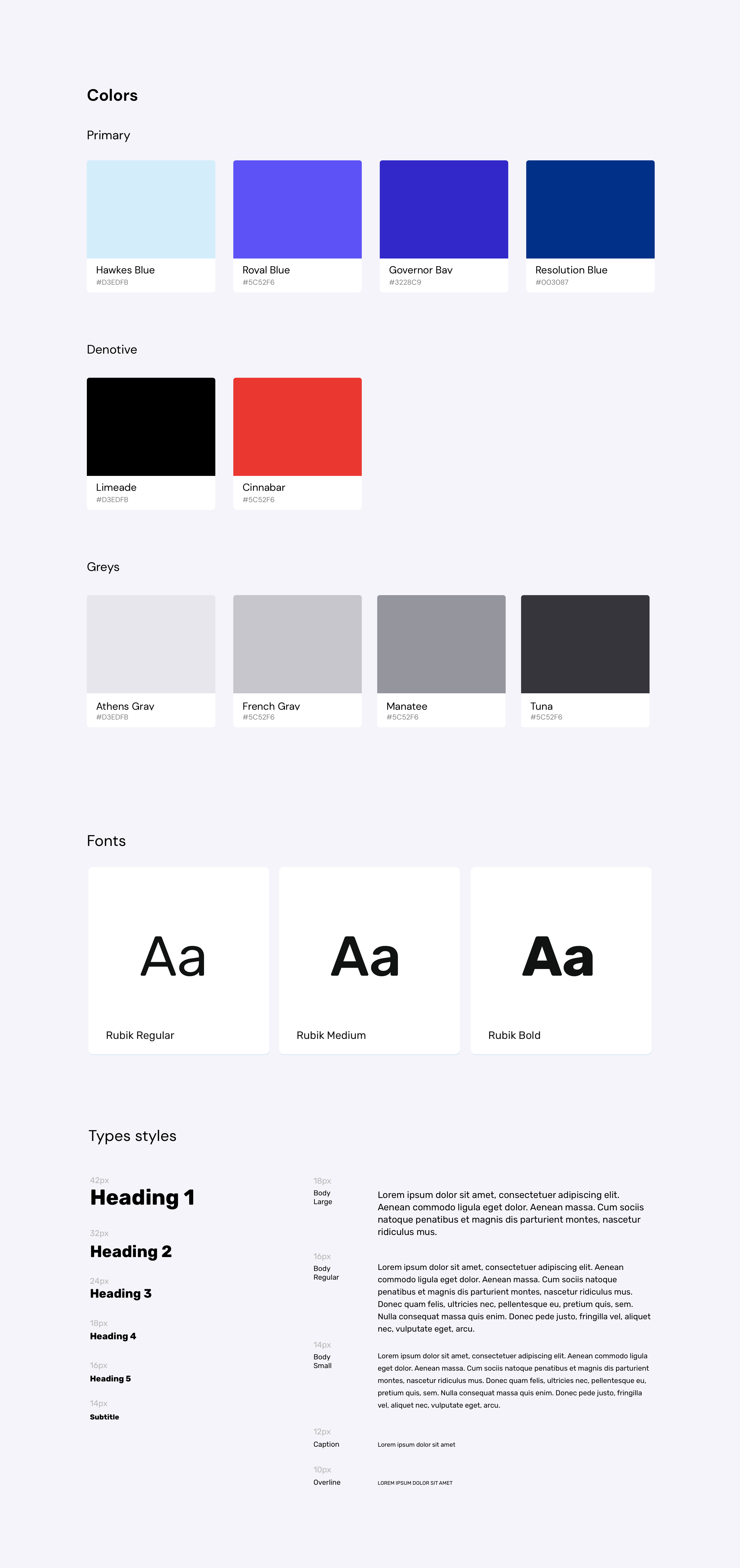
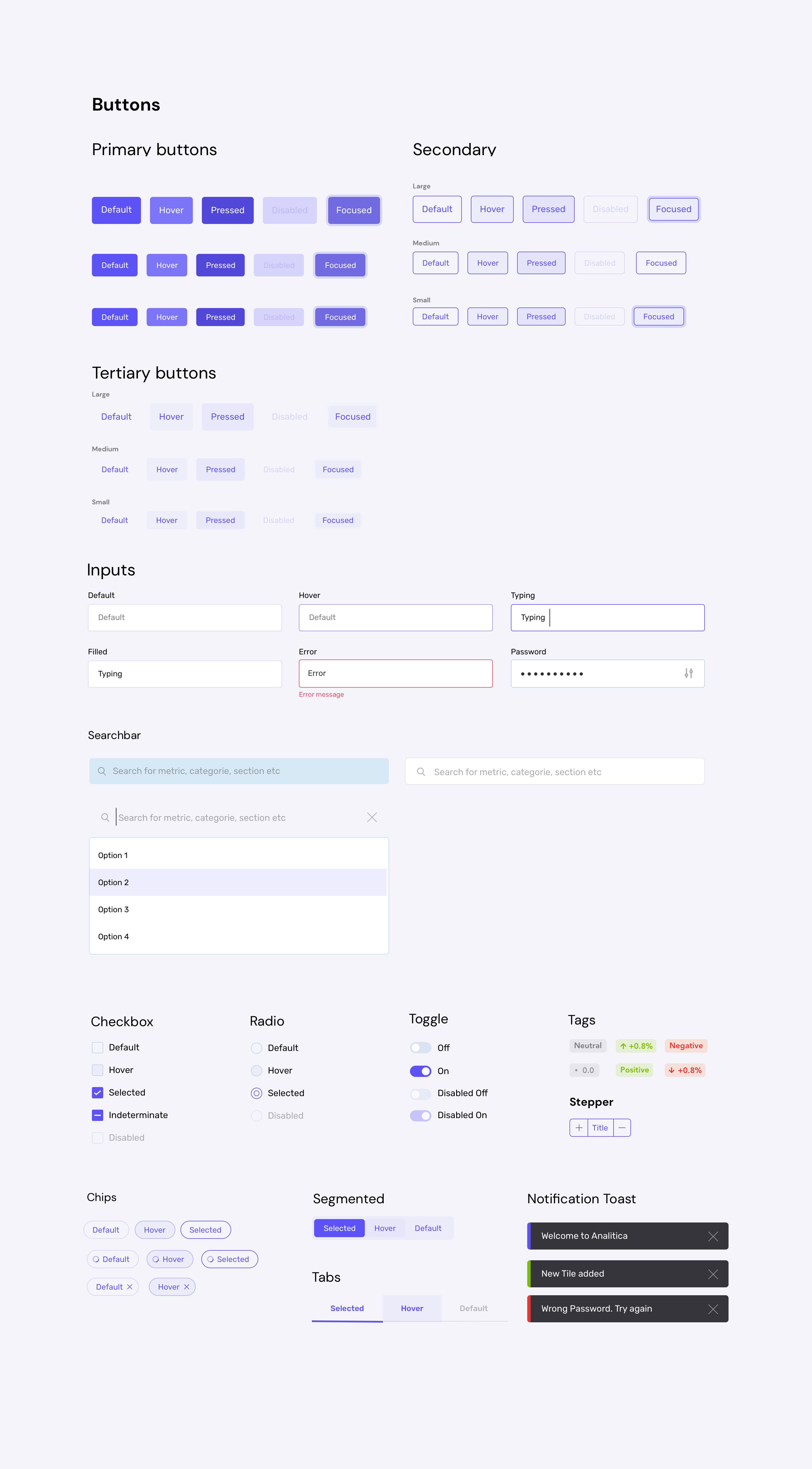
Web tool for Admins
The Administrator would be in charge of the supervision of the tiles that were going to be used as templates. Data was gathered from a list of connections also accessible for this role.


Feel free to get in touch
hello@mpaulinoz.com